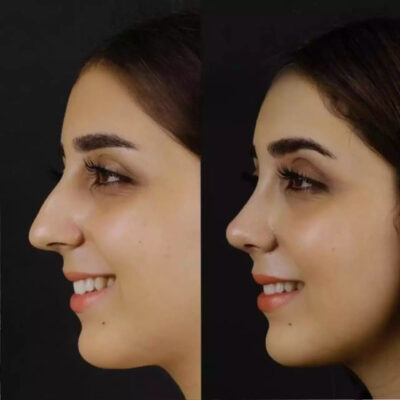Everyday tasks that most people take for granted can become challenging for seniors and individuals coping with illness or disability. These basic self-care tasks are known as Activities Of Daily Living (ADLs), and they are essential for maintaining personal independence and well-being. Understanding what ADLs entail, why they matter, and how support services can help is crucial for families seeking the best care for their loved ones.
What Are Activities Of Daily Living?
Activities Of Daily Living are the essential tasks required to manage personal care and live independently. The most commonly recognized ADLs include:
-
Bathing and hygiene: Washing the body, brushing teeth, grooming hair.
-
Dressing: Selecting and putting on appropriate clothing.
-
Eating: Preparing and consuming meals.
-
Toileting: Using the bathroom and maintaining continence.
-
Mobility: Moving safely from place to place, including walking and transferring.
-
Personal hygiene: Maintaining cleanliness throughout the day.
These activities represent the foundation of functional independence. When an individual can no longer perform one or more ADLs independently, their safety, health, and dignity may be at risk.
The Importance of ADLs for Independence
Being able to carry out ADLs is a key indicator of a person’s ability to live independently. Loss of function in these areas can lead to increased reliance on family or professional caregivers, and may necessitate assisted living or nursing home care.
Supporting ADLs helps seniors and individuals with disabilities:
-
Maintain dignity: Performing self-care tasks independently or with assistance preserves a sense of pride and self-worth.
-
Ensure safety: Assistance with mobility and toileting reduces fall risks and accidents.
-
Promote health: Proper hygiene and nutrition prevent infections, skin issues, and malnutrition.
-
Enhance emotional well-being: Independence fosters confidence, reduces anxiety, and encourages social engagement.
How Caregivers Assist With Activities Of Daily Living
At A Better Solution Home Care, our trained caregivers provide compassionate, personalized support tailored to each client’s unique needs. Our assistance with ADLs allows individuals to stay safely in their homes longer while maintaining their independence.
Bathing and Personal Hygiene Support
Caregivers help with safe, respectful bathing and grooming routines that clients may find difficult due to mobility or cognitive challenges. Maintaining cleanliness is vital for physical health and comfort.
Dressing Assistance
Caregivers assist with selecting clothes appropriate to the weather and occasion and help clients dress, ensuring comfort and dignity.
Meal Preparation and Feeding Help
Proper nutrition is fundamental. Caregivers prepare balanced meals and assist with feeding if necessary, ensuring clients receive adequate nourishment.
Toileting and Continence Care
Discreet support with toileting and hygiene helps prevent skin irritation and infections, while maintaining client dignity.
Mobility and Transfer Support
Caregivers provide safe assistance with walking, transferring in and out of beds or chairs, and using mobility aids to prevent falls.
Tailored Care Plans That Empower Independence
Our approach focuses on promoting as much independence as possible. We assess each individual’s capabilities and create care plans that provide the right level of assistance—helping clients perform tasks they are still capable of, while supporting those they cannot manage alone.
Supporting Clients With Cognitive Challenges
Cognitive impairments such as dementia or Alzheimer’s disease can make completing ADLs confusing or stressful. Our caregivers are trained to provide patient, gentle support, helping maintain routines and a sense of security.
Benefits of Professional ADL Assistance at Home
-
Comfort: Remaining in familiar surroundings promotes emotional well-being.
-
Customized care: One-on-one attention tailored to individual needs.
-
Safety: Reduces the risk of injury through professional supervision.
-
Family support: Relieves the physical and emotional strain on family caregivers.
-
Delaying institutionalization: Appropriate ADL support helps many seniors remain at home longer.
Signs That Indicate the Need for ADL Support
Families and caregivers should be alert to signs such as:
-
Difficulty bathing or dressing independently
-
Increased falls or unsteady gait
-
Poor nutrition or weight loss
-
Forgetting medications or appointments
-
Withdrawal from social activities
Early recognition allows timely intervention that can improve outcomes.
Activities Of Daily Living refer to the fundamental self-care tasks individuals perform daily to manage their personal needs. These activities are necessary to live independently and include:
-
Bathing and Personal Hygiene: Washing the body, brushing teeth, grooming hair, shaving, and other aspects of personal cleanliness.
-
Dressing: Selecting appropriate clothing and dressing for the day or for specific occasions.
-
Eating: Preparing and consuming meals, and sometimes assistance with feeding.
-
Toileting: Using the restroom, managing continence, and maintaining cleanliness.
-
Mobility: Moving safely from place to place, including walking, transferring between beds and chairs, and using mobility aids.
-
Personal Hygiene: Maintaining overall cleanliness throughout the day, such as hand washing and oral care.
These six categories form the foundation of independent living. The ability to perform these tasks without help is a vital marker of physical and cognitive health.
Conclusion
Activities Of Daily Living are the cornerstone of independent living and overall well-being. When challenges arise, compassionate and skilled assistance with these tasks can greatly improve safety, dignity, and quality of life.
At A Better Solution Home Care, our caregivers are committed to providing personalized ADL support that empowers individuals to live comfortably and confidently in their own homes. If you or a loved one needs help with daily living activities, contact us today to learn how our services can make a positive difference.



